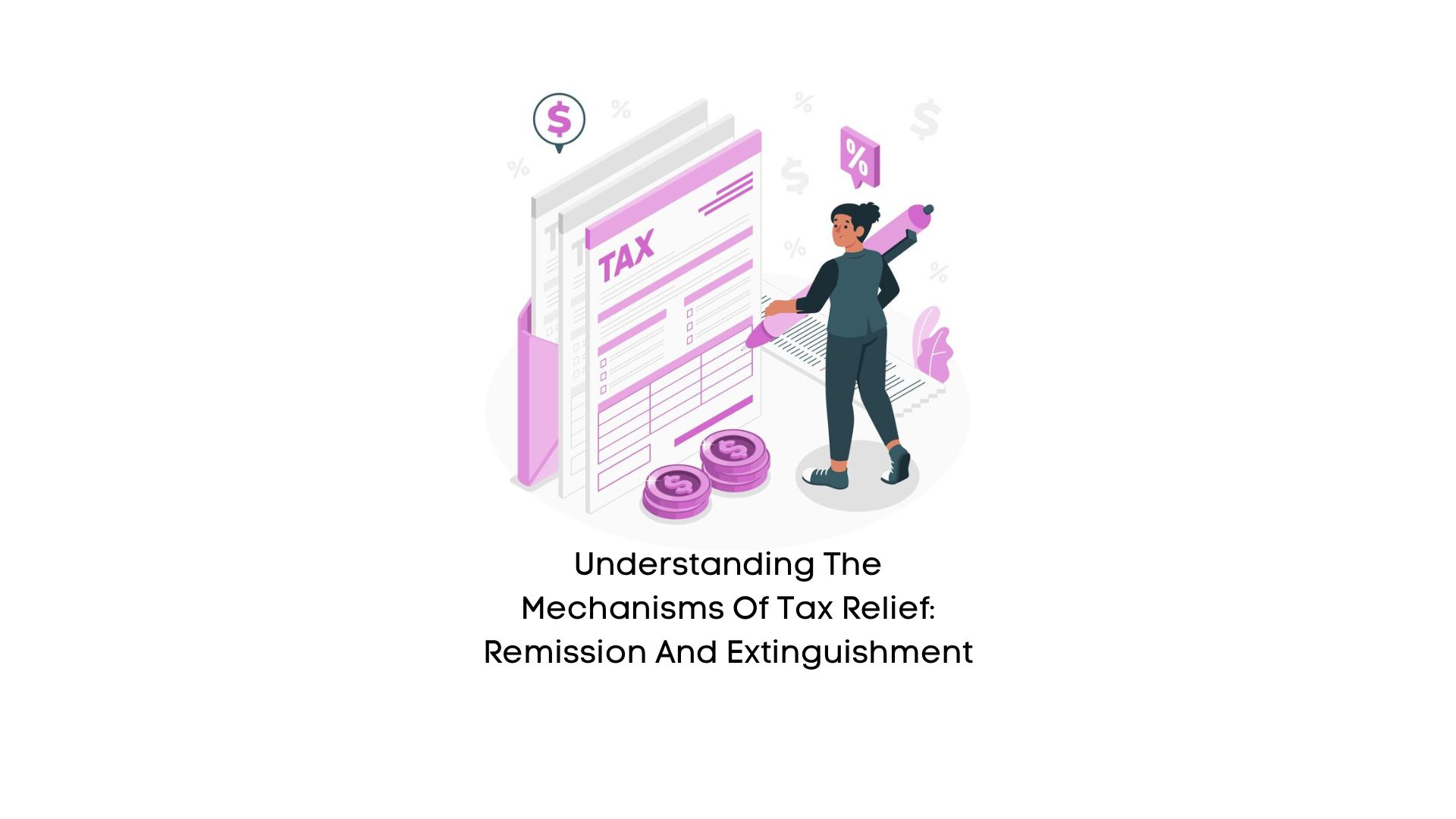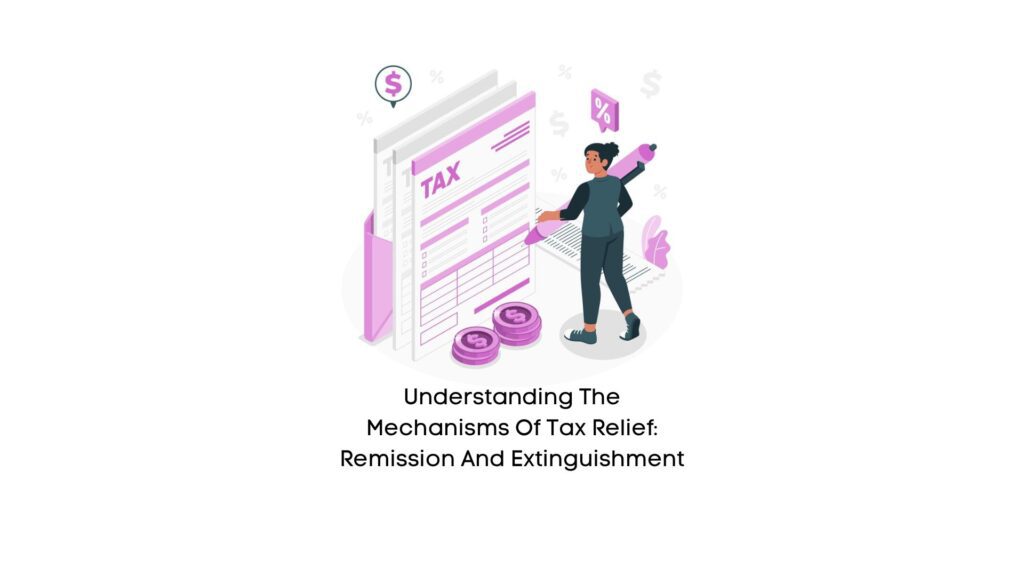
10 Apr Understanding the Mechanisms of Tax Relief: Remission and Extinguishment

Introduction:
The concepts of remission and extinguishment of tax demand involve the cancellation or forgiveness of a taxpayer’s outstanding tax liabilities. These legal mechanisms offer relief to taxpayers facing difficulties in settling their tax obligations fully. In this article, we will delve into the provisions of remission and extinguishment of tax demand, exploring their definitions, legal frameworks, and implications.
Government Initiatives:
- Cleaning Up Records: Tax authorities may have old, unverified, or disputed tax demands. Remission helps clear these records, reducing administrative burdens.
- Improving Taxpayer Services: Offering remission for smaller debts improves taxpayer relations and encourages future compliance.
Recent Example in India (as of March 2024):
In the 2024 Interim Budget, the Indian government announced a remission and extinguishment program for specific direct tax demands, waiving outstanding tax demands up to a certain limit depending on the tax year.
Key Points to Remember:
- The forgiven amount is not considered income for the taxpayer.
- It does not entitle the taxpayer to claim any refunds or credits for the waived amount.
- Pending criminal proceedings related to the tax demand are not affected by the remission.
Remission of Tax Demand:
- Remission is a legal process through which a tax authority forgives all or a portion of a taxpayer’s outstanding tax liabilities.
- It aims to alleviate financial burdens on taxpayers genuinely unable to pay their taxes due to significant hardships or extraordinary circumstances.
Legal Framework:
- The remission of tax demand is governed by specific laws and regulations in each jurisdiction, outlining conditions for granting remission and the authority responsible for making such decisions.
Grounds for Remission:
- Tax authorities consider various grounds when assessing remission requests, including financial hardship, natural disasters, unforeseen events, or other exceptional circumstances.
Procedure for Remission:
- Taxpayers typically file a formal request with the relevant tax authority, providing detailed information about their financial situation and reasons for seeking remission, along with supporting documents.
- The tax authority reviews each request on a case-by-case basis before making a decision.
Extinguishment of Tax Demand:
- Extinguishment of tax demand refers to the permanent termination of a taxpayer’s liability to pay taxes, erasing the tax liability and relieving the taxpayer of any obligation to pay.
Legal Basis:
- Extinguishment of tax demand can occur through various legal mechanisms such as statutes of limitations, judicial decisions, settlements, or legislative enactments, depending on the jurisdiction.
Key Considerations:
- It's not a refund; the forgiven amount is not returned to the taxpayer.
- There may be limitations on the amount of tax that can be remitted or extinguished, as well as the reasons for doing so.
- This concept typically applies to direct taxes like income tax and may not apply to indirect taxes like sales tax.
Conclusion:
Remission and extinguishment of tax demand are crucial legal mechanisms that provide relief to taxpayers facing financial difficulties. While remission offers relief through forgiveness of outstanding tax liabilities, extinguishment permanently terminates the taxpayer’s tax liability. Understanding the legal framework and procedures associated with these concepts is essential for taxpayers and professionals navigating the complexities of tax law. By comprehending the intricacies of remission and extinguishment, taxpayers can seek relief when appropriate, ensuring compliance and mitigating potential financial hardships. Additionally, tax authorities must administer these mechanisms judiciously, balancing relief for deserving taxpayers with revenue collection for the benefit of society as a whole.


No Comments